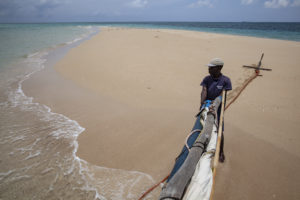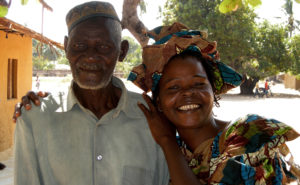TRADITIONS AND RITUALS
Rites of passage
There are a number of rituals and traditions that take place on Ibo and the surrounding islands, many of which mark important moments in life, or rites of passage. You can ask your guide, hotel or the information point staff how you can experience, or learn more about, these events.
In the Ibo District a sequence of ceremonies takes place for each individual from birth. These ceremonies are considered important because they teach children to respect adults, and vice versa. The foundation of these traditions is Mwenyezimungu or ‘the will of God’, on which all ceremonies depend.
The haircut (n’godo):
During this ceremony, a newborn’s hair is cut for the first time. The child is then taken back to his parent’s home accompanied by marching drummers. The ceremony is led by women and takes place when a baby is between 40 days and 3 months old. A big party is held by the family, and the baby receives gifts from everyone.
Rite of female initiation (riga):
This ritual is performed by female elders known as ‘Necanga’ and teaches girls, from around the age of 12 and, over the course of 3 days, prepares them for married life.
Circumcision (kumbi):
This ritual is obligatory for every boy before he approaches puberty. He is taken to an isolated area where he attends lessons in respect of his traditions and beliefs. He is circumcised by a traditional leader. This ritual is only for boys, and it can last from 30 to 45 days.
The request for marriage (nicah):
This ritual is a proposal of marriage, made by delivering a letter to the potential bride, often accompanied by the future groom’s female family members, who sing until they arrive at the bride’s house. At this point the letter is placed in an envelope, and handed over to the future bride’s family. The woman in question accepts or refuses the proposal by sending a letter to the groom’s house. If her response is positive, the groom will buy a bed and a mattress and from there they will begin preparations for their wedding. The wedding ceremony is characterised by dancing and music.
Dowry (arussi):
Whether or not the bride has been previously married, a dowry must be paid to her family by the groom. This is usually a bed and mattress, money, or the provision of anything that is needed by the family of the bride.
Mussiro face mask
You may see women and children wearing a pale coloured paste dried onto their faces – this is “Mussiro” – a face mask which is considered to be good for the skin and used as protection from the sun. In ancient times it was only used by single women or by married women when their husbands were away, but today it is used by women and children alike.









